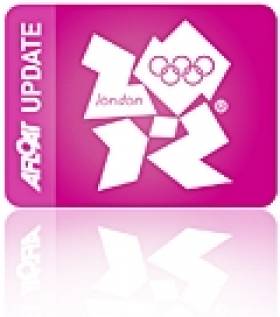Displaying items by tag: score
#olympicsailing scoring – There's no surprise that there's a lot of confusion out there about how Olympic sailing scoring works. Miriam Lord in the Irish Times this morning admits to knowing very little about the whole 'sailing lark'. Radio presenters on Newstalk are also scratching their heads. Plenty of sailors get confused too, sailing can be complex, scoring more so but here's an explanation of how the results sheet will work for Annalise Murphy and others on the Olympic sailing team.
After each race, participants are given a number of points depending on their finishing position (not time). The winner gets 1 point, the second place gets 2 points, and so on.
In Annalise's Laser Radial class there are 10 races plus a final 'medal' race.
Even though Annalise has won four races she still has more to come. As of this morning Annalise has six races left to sail. It is the reason she has been cautious in media reports about making any predictions. 'I'm just taking it one race at a time', she said yesterday. Her score sheet is here.
The reason there is 10 races spread out over six days is that it gives the biggest chance of providing the widest range of wind conditions for a true champion to emerge.
Of the 10 series races sailed by this Saturday the 41 sailors in the fleet will discard their worst result.
Then the top 10 sailors in the fleet go into a medal race (next Monday) which is for double points and this race cannot be discarded. The rest of the fleet can go home, their regatta is over.
The overall winner is the sailor with the fewest aggregate points across the fleet races and the medal race final.
The results system means that the result in the final medal race doesn’t automatically dictate where the medals will go – if the leader has built up a healthy enough lead on points (four wins for Annalise is obviously great), a sailor could still take the gold if they come second or third in the final.
Can Annalise 'Medal' Before Monday's Medal Race? Even if Annalise were to continue in current form and win all ten fleet races she can't medal before the final but if for example she gets a 19 point lead in the fleet racing all she has to do is finish the medal race even in tenth place to become Olympic champion.
Of course there are no end of other possibilities that can arise between now and Monday including the race schedule changing because of problems with wind strength for example. This could cut the number of races sailed. There are other scenarios where a sailor can receive a non discardable penalty for rule infringements. The full racing rules of sailing are here.






























































